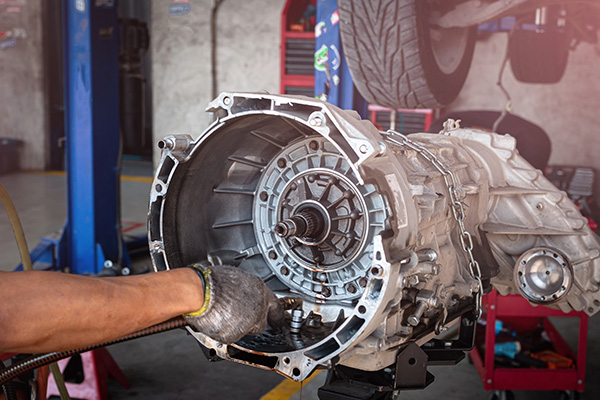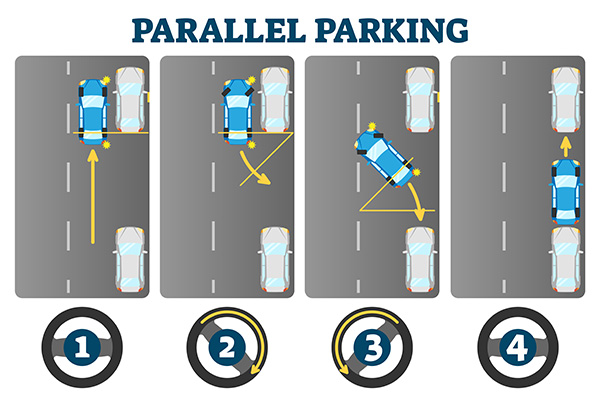Posted on 3/28/2025

Rainy roads might not seem as dangerous as icy ones, but hydroplaning can make even a light drizzle a serious hazard. One moment, you’re in control; the next, your car feels like it’s gliding over the pavement with no traction. Losing control of your vehicle, even briefly, is terrifying—and it happens more often than you might think. Hydroplaning isn’t just a problem in heavy downpours. It can happen in light rain, especially if the roads are slick from oil and debris. Understanding what causes it, how to prevent it, and what to do if it happens can keep you safer when driving in wet conditions. What Causes Hydroplaning Hydroplaning occurs when your tires lose direct contact with the road due to a layer of water between them and the pavement. Normally, tire treads channel water away, but when there's too much water or the tread isn’t deep enough to disperse it quickly, the tires can no longer grip the road. Several factors make hyd ... read more
Posted on 2/28/2025

A vehicle’s suspension system is responsible for keeping your ride stable, comfortable, and controlled. Whether you’re driving on smooth highways or rough backroads, your car’s suspension absorbs shocks, maintains tire contact with the road, and provides better handling. But not all suspension systems work the same way—modern vehicles use a variety of designs, each offering unique benefits depending on the type of vehicle and driving conditions. Suspension Systems Suspension does more than just soften the bumps in the road. A well-functioning suspension system ensures that your tires stay in contact with the pavement, improving safety, braking, and stability. Different vehicles require different suspension setups—for example, a luxury sedan prioritizes comfort, while a sports car focuses on sharp handling, and an off-road vehicle needs durability and flexibility. Types of Suspension Systems Used in Modern Vehicles Mode ... read more
Posted on 1/31/2025

Your car’s transmission is a critical component that ensures your vehicle runs efficiently. However, many drivers unknowingly adopt habits that can strain or damage this vital system, leading to costly repairs and headaches. By being aware of these habits and correcting them, you can extend the life of your transmission and keep your car running in top shape. Resting Your Hand on the Gear Shift If you drive a manual vehicle, you might be tempted to rest your hand on the gear shift while cruising. While this may seem harmless, it’s anything but. The additional weight of your hand can put unnecessary pressure on the transmission's components, causing premature wear over time. Instead, make it a habit to keep both hands on the steering wheel unless you’re actively shifting gears. This not only protects your transmission but also enhances your control over the vehicle. Shifting Gears Without Stopping Completely Switching from rev ... read more
Posted on 12/20/2024

Whether you’re a seasoned driver or a beginner, the thought of squeezing your car between two others on a crowded street can feel intimidating. But here’s the thing: with the right approach and a little practice, parallel parking doesn’t have to be a dreaded task. Let’s walk through the steps so you can confidently park in even the trickiest spots. Why Is Parallel Parking a Useful Skill Think about those bustling city streets or tight parking spaces near popular venues. Parallel parking is essential when regular parking spots are nowhere to be found. Mastering this skill not only helps you avoid circling the block endlessly but also builds your overall confidence as a driver. Plus, if you’re preparing for a driving test, nailing your parallel parking could make or break your exam results. Getting Started The first step is finding the right spot. You don’t need a huge gap, but there should be enough room for your ... read more
Posted on 11/29/2024

The holiday season brings joy, family reunions, and plenty of time spent on the road. While Christmas travels can be exciting, they also come with challenges, such as unpredictable weather and heavy traffic. To make your journey enjoyable and, more importantly, safe, it's essential to ensure that your car is in good condition. Here are some tips to help keep your ride cheerful and trouble-free. Preparing Your Car for Christmas Adventures Before hitting the road, make sure your vehicle is ready for the trip. Holiday travel often involves long distances, and you don’t want unexpected car trouble to spoil the festive mood. Start by checking essential components like your tires, brakes, and battery. Worn-out tires can lead to poor traction, especially on icy roads, while a weak battery may leave you stranded in the cold. Don't forget to inspect your fluids—oil, coolant ... read more